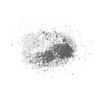| Jiro Arima, et al. (2008) Streptomyces aminopeptidase P: biochemical characterization and insight into the roles of its N-terminal domain. Protein Engineering Design and Selection 21, 45-53.
Kimberly A. Burkhard and Angela Wilks. (2007) Characterization of the outer membrane receptor shuA from the heme uptake system of Shigella dysenteriae: substrate specificity and identification of the heme protein ligands. Journal of Biological Chemistry 282, 15126-15136.
Wei Cao, et al. (2007) RAET1E2, a soluble isoform of the UL16 binding protein RAET1E produced by tumor cells, inhibits NKG2D-mediated NK cytotoxicity.. Journal of Biological Chemistry 282, 18922-18928.
Testuro Fujii, et al. (2007) Stable supply of large amounts of human Fab from the inclusion bodies in E. coli. Journal of Biochemistry (Tokyo) 141, 699-707.
Mark S. McClain and Timothy L. Cover. (2007) Functional analysis of neutralizing antibodies against Clostridium perfringens epsilon-toxin. Infection and Immunity 75, 1785-1793.
Hisashi Nishiwaki, et al. (2007) Cloning, functional characterization, and mode of action of a novel insecticidal pore-forming toxin, sphaericolysin, produced by Bacillus sphaericus. Applied and Enviornmental Microbiology 73, 3404-3411.
Laura M. Roy, et al. (2007) Human polymorphic variants of the NEIL1 DNA glycosylase. Journal of Biological Chemistry 282, 15790-15798.
Katja Strube, Simon de Vries and Rainer Cramm. (2007) Formation of a dinitrosyl iron complex by NorA, a nitric oxide binding di-iron protein from Ralstonia eutropha H16. Journal of Biological Chemistry 282, 20292-20300.
Elizebeth C. Turner and Charles J. Dorman. (2007) H-NS antagonism in Shigella flexneri by VirB, a virulence gene yranscription regulator that is closely related to plasmid partition factors. Journal of Bacteriology 189, 3403-3413.
Ernest P. Williams, et al. (2007) Mycobacterium tuberculosis SigF regulates genes encoding cell wall-associated proteins and directly regulates the transcriptional regulatory gene phoY1. Journal of Bacteriology 189, 4234-4242.
Frédéric Chédin, et al. (2006) The AddAB helicase/nuclease forms a stable complex with its cognate sequence during translocation. Journal of Biological Chemistry 281, 18610-18617.
John F. Langenheim, et al. (2006) Two wrongs can make a right: dimers of prolactin and growth hormone receptor antagonists behave as agonists. Molecular Endocrinology 20, 661-674.
Emma Carmelo, et al. (2005) The unstructured N-terminal tail of ParG modulates assembly of a quaternary nucleoprotein complex in transcription repression. Journal of Biological Chemistry 280, 28683-28691.
Veronika Csizmok, et al. (2005) A novel 2D electrophoresis technique for the identification of intrinsically unstructured proteins. Molecular and Cellular Proteomics 5, 265-273.
Natalie Elia, et al. (2005) Excess of Gβe over Gqαe in vivo prevents dark, spontaneous activity of Drosophila photoreceptors. Journal of Cell Biology 171, 517-526.
Henri-Pierre Fierobe, et al. (2005) Action of designer cellulosomes on homogeneous versus complex substrates: controlled incorporation of three distinct enzymes into a defined tri-functional scaffoldin. Journal of Biological Chemistry 280, 16325-16334.
Laurent Loiseau, et al. (2005) Analysis of the heteromeric CsdA-CsdE cysteine desulfurase, assisting Fe-S cluster biogenesis in Escherichia coli. Journal of Biological Chemistry 280, 26760-26769.
Isabelle S. Lucet, et al. (2005) Identification of the structural and functional domains of the large serine recombinase tnpX from Clostridium perfringens. Journal of Biological Chemistry 280, 2503-2511.
Jeremy Moore, et al. (2005) Recognition of saccharides by the OpcA, OpaD and OpaB outer membrane proteins from Neisseria meningitidis. Journal of Biological Chemistry 280, 31489-31497.
Kyoung Joon Oh, et al. (2005) Conformational changes in BID, a pro-apoptotic BCL-2 family member, upon membrane binding: a site-directed spin labeling study. Journal of Biological Chemistry 280, 753-767.
Amit V. Pandey and Walter L. Miller. (2005) Regulation of 17,20 lyase activity by cytochrome b5 and by serine phosphorylation of P450c17. Journal of Biological Chemistry 280, 13265-13271.
Mark R. Proctor, et al. (2005) Tailored catalysts for plant cell-wall degradation: redesigning the exo/endo preference of Cellvibrio japonicus arabinanase 43A. Proceedings of the National Academy of Sciences (USA) 102, 2697-2702.
Annabelle Varrot, et al. (2005) Mycobacterium tuberculosis strains possess functional cellulases. Journal of Biological Chemistry 280, 20181-20184.
John C. Williams, et al. (2005) Crystal structure of human SCO1: Implications for redox signaling by a mitochondrial cytochrome c oxidase "assembly" protein. Journal of Biological Chemistry 15202-15211.
Bogdan Yatsula, et al. (2005) Identification of binding sites of EVI1 in mammalian cells. Journal of Biological Chemistry 280, 30712-30722.
Heyue Zhou, et al. (2005) Solution structure of AF-6 PDZ domain and its interaction with the C-terminal peptides from neurexin and Bcr. Journal of Biological Chemistry 280, 13841-13847.
Guoqiang Zhu, et al. (2005) Histone H1 proteins act as receptors for the 987P fimbriae of enterotoxigenic Escherichia coli. Journal of Biological Chemistry 280, 23057-23065.
Tao Dong, et al. (2004) HIV-specific cytotoxic T cells from long-term survivors select a unique T cell receptor. Journal of Experimental Medicine 200, 1547-1557.
Hiroyasu Furukawa and Eric Gouaux. (2003) Mechanisms of activation, inhibition and specifcity: crystal structures of the NMDA receptor NR1ligand-binding core. European Molecular Biology Organization Journal 22, 2873-2885.
Anja Seybert, et al. (2002) Biochemical characterisation of the clamp/clamp loader proteins from the euryarchaeon Archaeoglobus fulgidus. Nucleic Acids Research 30, 4329-4338.
Daniela Barilla, Barbara A. Lee and Nick J. Proudfoot. (2001) Cleavage/ polyadenylation factor IA associates with the carboxyl-terminal domain of RNA polymerase II in Saccharomyces cerevisiae. Procedings of the National Academy of Science 98, 445-450.
Jae Hyung Koo, Ick Hyun Cho and Yu Sam Kim. (2000) The malonate decarboxylase operon of Acinetobacter calcoaceticus KCCM 40902 is regulated by malonate and the transcriptional repressor MdcY. Journal of Bacteriology 182, 6382-6390.
Z. Lin, T. Thorsen and F.H. Arnold. (1999) Functional expression of horseradish peroxidase in E. coli by directed evolution. Biotechnology Progress (?) 15, 467-471.
Gavin MacBeath, Peter Kast and Donald Hilvert. (1998) Redesigning enzyme topology by directed evolution. Science 279, 1958-1961.
Allan J. MacKenzie-Graham, et al. (1997) Myelin protein expression is increased in lymph nodes of mice with relapsing experimental autoimmune encephalomyelitis. Journal of Immunology 159, 4601-4610.
Ralph H. Lambalot and Christopher T. Walsh. (1995) Cloning, overproduction, and characterization of the Escherichia coli holo-acyl carrier protein synthase. Journal of Biological Chemistry 270, 24658-24661.
|
|














